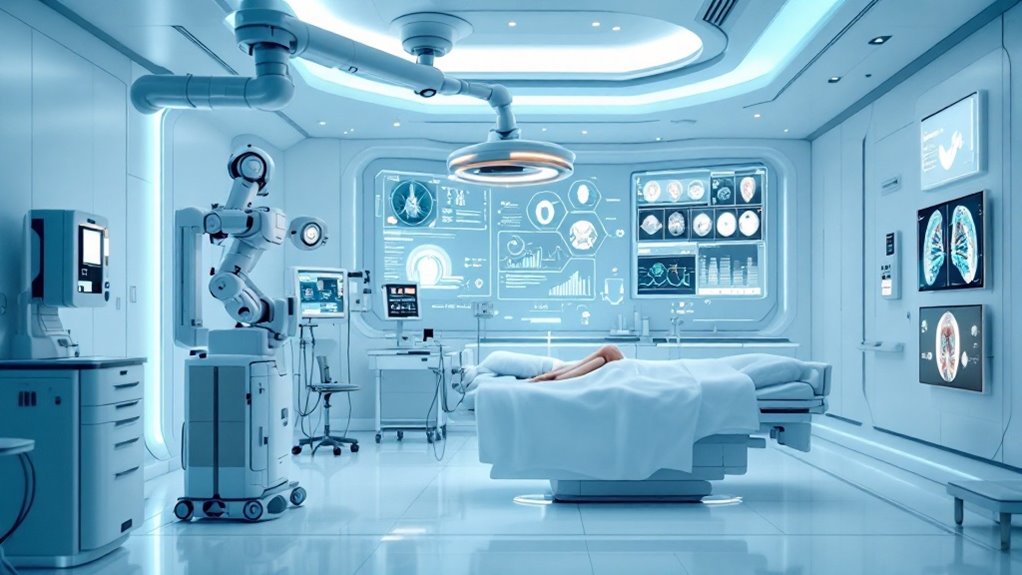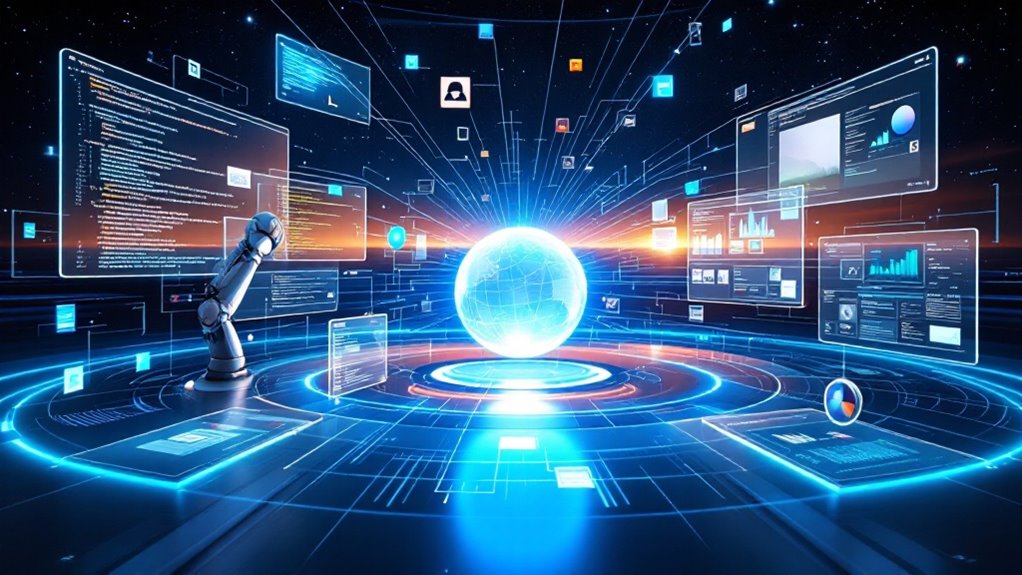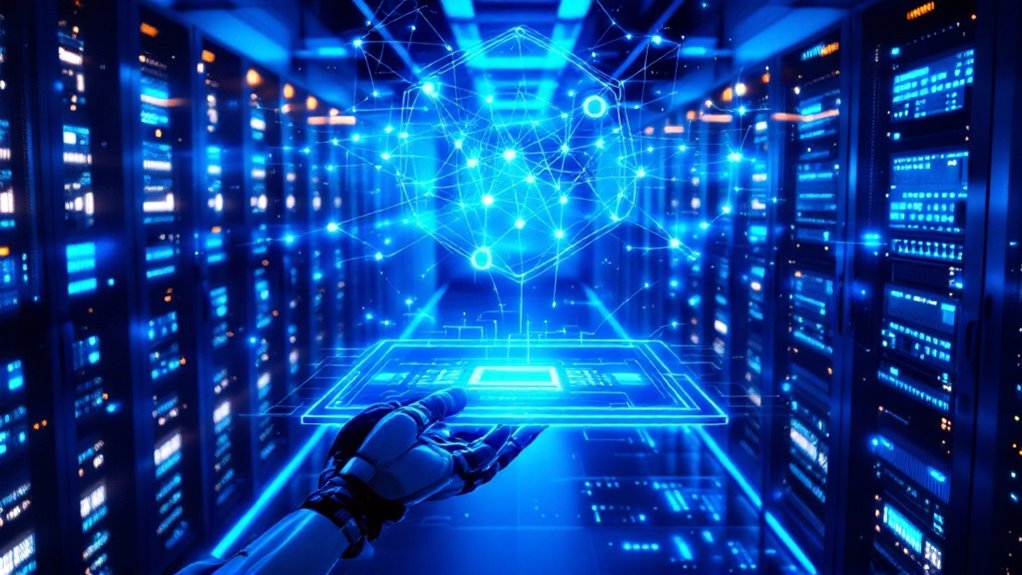AI is revolutionizing healthcare across multiple fronts. Medical imaging systems spot tumors before radiologists can, while smart EHRs predict patient risks instead of just storing data. Decision support tools help doctors diagnose conditions faster and match cancer patients with personalized treatments. Remote monitoring keeps patients at home while algorithms track their essential signs 24/7. Healthcare’s AI revolution isn’t just coming—it’s already here, transforming how care works behind the scenes every day.
The digital revolution sweeping through hospital corridors isn’t wearing scrubs—it’s wearing algorithms. Medicine’s newest interns don’t need coffee breaks or sleep, just processing power and clean data. From radiology departments to remote patient monitoring, AI is transforming healthcare with remarkable speed and precision.
In medical imaging, AI has become the eagle-eyed assistant radiologists didn’t know they needed. These systems can spot tiny abnormalities in X-rays and MRIs that might escape human detection, identifying early-stage cancers and neurological disorders like Alzheimer’s before symptoms become obvious. When your doctor stares intently at your scan and nods knowingly, there’s a decent chance AI helped them reach that conclusion.
Electronic health records—once just digital file cabinets—are now predictive powerhouses. AI systems sift through thousands of patient records to identify high-risk individuals and suggest personalized prevention strategies. They’re also reducing the documentation burden that has doctors typing more than talking to patients. Advanced platforms like Google’s Med-PaLM are now surpassing human experts on medical licensing-style questions, revolutionizing how healthcare providers access information. Remember when physicians carried clipboards instead of laptops? Neither does AI.
The clinical decision support domain is where AI truly shines. While you’re describing your symptoms, your doctor’s screen might be quietly suggesting possible diagnoses and treatment options based on the latest medical evidence. These systems can predict complications like sepsis before they occur and help prioritize emergency room patients who need immediate attention. With healthcare facing a projected global shortage of 18 million professionals by 2030, these AI tools are becoming increasingly vital for maintaining quality care.
Personalized medicine gets a significant boost from AI’s analytical capabilities. Oncology patients benefit from treatment plans tailored to their tumor’s specific genetics, while predictive algorithms match patients with appropriate clinical trials. The remarkable technology has demonstrated its value in lung cancer treatment, where AI can identify effective drug combinations for patients within just two days after tumor biopsy. It’s like having a treatment matchmaker that never sleeps.
Remote monitoring enabled by AI lets patients recover at home while algorithms watch for concerning changes in critical signs. These systems are reducing hospital readmissions and keeping patients connected to care without requiring constant office visits.
Healthcare’s AI revolution isn’t perfect—questions about privacy, bias, and the human touch remain—but the algorithms have definitely checked in for their shift.









